Stephan Schiffels

Group leader
Department of Archaeogenetics
Max Planck Institute for Evolutionary Anthropology
Deutscher Platz 6
04103 Leipzig
phone: +49 (0) 341 3550 550
e-mail:
stephan_schiffels@[>>> Please remove the text! <<<]eva.mpg.de
Projects / Group
- I am group leader of the Population Genetics group at the Department for Archaeogenetics. My group at the MPI investigates human history by means of Genetics, and develops computational methods to model and analyse ancient and modern genomic data.
- I am Principal investigator of the ERC-funded project MICROSCOPE, and co-lead the Poseidon project.
Curriculum Vitae
I have studied Physics at the University of Cologne, Germany, and finished my PhD in January 2012. In my thesis I studied asexual adaptation and the effect of genetic linkage on natural selection. From 2012 until 2015 I was a Postdoctoral Fellow with Richard Durbin at the Wellcome Trust Sanger Institute in Hinton, Cambridge, UK. I have mainly worked on methods to estimate past demography from genome sequences, and on ancient DNA from archaeological sites in East England, dating to the Iron Age and early Anglo-Saxon era. Since September 2015 I am research group leader at the Max-Planck-Institute for the Science of Human History in Jena, Germany.
In 2019 I was awarded an ERC Starting grant to develop new population genetic methods based on rare genetic variation, and to study the European Iron Age (Project MICROSCOPE)
Since 2020 I have transferred my group, together with the Department of Archaeogenetics, to the MPI for Evolutionary Anthropology (MPI-EVA) in Leipzig. Since October 2021 I am a W2 Max Planck Research Group Leader at the MPI-EVA.
Videos
Publications
2024
Gretzinger, J., Gibbon, V. E., Penske, S. E., Sealy, J. C., Rohrlach, A. B., Salazar-García, D. C., Krause, J. *., & Schiffels, S. *. (2024). 9,000 years of genetic continuity in southernmost Africa demonstrated at Oakhurst rockshelter. Nature Ecology & Evolution, 8(11), 2121-2134. |
|
Schiffels, S., & Nägele, K. (2024). Population history of Rapa Nui rewritten. Nature, 633(8029), 290-291. |
|
Michel, M. *., Skourtanioti, E., Pierini, F., Guevara, E. K., Mötsch, A., Kocher, A., Barquera, R., Bianco, R. A., Carlhoff, S., Coppola Bove, L., Freilich, S., Giffin, K., Hermes, T., Hiß, A. N., Knolle, F., Nelson, E. A., Neumann, G., Papac, L., Penske, S., Rohrlach, A. B., Salem, N., Semerau, L., Villalba-Mouco, V., Abadie, I., Aldenderfer, M., Beckett, J. F., Brown, M., Campus, F. G. R., Chenghwa, T., Cruz Berrocal, M., Damašek, L., Duffett Carlson, K. S., Durand, R., Ernée, M., Fântăneanu, C., Frenzel, H., García Atiénzar, G., Guillén, S., Hsieh, E., Karwowski, M., Kelvin, D., Kelvin, N., Khokhlov, A., Kinaston, R. L., Korolev, A., Krettek, K.-L., Küßner, M., Lai, L., Look, C., Majander, K., Mandl, K., Mazzarello, V., McCormick, M., de Miguel Ibáñez, P., Murphy, R., Németh, R. E., Nordqvist, K., Novotny, F., Obenaus, M., Olmo-Enciso, L., Onkamo, P., Orschiedt, J., Patrushev, V., Peltola, S., Romero, A., Rubino, S., Sajantila, A., Salazar-García, D. C., Serrano, E., Shaydullaev, S., Sias, E., Šlaus, M., Stančo, L., Swanston, T., Teschler-Nicola, M., Valentin, F., Van de Vijver, K., Varney, T. L., Vigil-Escalera Guirado, A., Waters, C. K., Weiss-Krejci, E., Winter, E., Lamnidis, T. C., Prüfer, K., Nägele, K., Spyrou, M., Schiffels, S., Stockhammer, P. W., Haak, W., Posth, C., Warinner, C., Bos, K. I., Herbig, A. *., & Krause, J. *. (2024). Ancient Plasmodium genomes shed light on the history of human malaria. Nature, 631(8019), 125-133. |
|
Childebayeva, A., Fricke, F., Rohrlach, A. B., Huang, L., Schiffels, S., Vesakoski, O., Mannermaa, K., Semerau, L., Aron, F., Solodovnikov, K., Rykun, M., Moiseyev, V., Khartanovich, V., Kovtun, I., Krause, J., Kuzminykh, S., & Haak, W. (2024). Bronze age Northern Eurasian genetics in the context of development of metallurgy and Siberian ancestry. Communications Biology, 7: 723. |
|
Gretzinger, J., Schmitt, F., Mötsch, A., Carlhoff, S., Lamnidis, T. C., Huang, Y., Ringbauer, H., Knipper, C., Francken, M., Mandt, F., Hansen, L., Freund, C., Posth, C., Rathmann, H., Harvati, K., Wieland, G., Granehäll, L., Maixner, F., Zink, A., Schier, W., Krausse, D. *., Krause, J. *., & Schiffels, S. *. (2024). Evidence for dynastic succession among early Celtic elites in Central Europe. Nature Human Behaviour. |
|
Geier, A., Trost, J., Wang, K., Schmid, C., Krawczyk, M., & Schiffels, S. (2024). PNPLA3 fatty liver allele was fixed in Neanderthals and segregates neutrally in humans. Gut, 73(6): 331594, pp. 1008-1012. |
|
Schmid, C., Ghalichi, A., Lamnidis, T. C., Aththanayaka Mudiyanselage, D. B., Haak, W., & Schiffels, S. (2024). Poseidon – A framework for archaeogenetic human genotype data management. eLife, 13: RP98317. |
|
Rohrlach, A. B., Rivollat, M., de-Miguel-Ibáñez, P., Moilanen, U., Liira, A.-M., Teixeira, J. C., Roca-Rada, X., Armendáriz-Martija, J., Boyadzhiev, K., Boyadzhiev, Y., Llamas, B., Tiliakou, A., Mötsch, A., Tuke, J., Prevedorou, E.-A., Polychronakou-Sgouritsa, N., Buikstra, J., Onkamo, P., Stockhammer, P. W., Heyne, H. O., Lemke, J. R., Risch, R., Schiffels, S., Krause, J., Haak, W., & Prüfer, K. (2024). Cases of trisomy 21 and trisomy 18 among historic and prehistoric individuals discovered from ancient DNA. Nature Communications, 15: 1294. |
2023
Wang, K. *., Prüfer, K., Krause-Kyora, B., Childebayeva, A., Schuenemann, V. J., Coia, V., Maixner, F., Zink, A., Schiffels, S., & Krause, J. *. (2023). High-coverage genome of the Tyrolean Iceman reveals unusually high Anatolian farmer ancestry. Cell Genomics, 3(9): 100377. |
|
Gibbon, V. E., Feris, L., Gretzinger, J., Smith, K., Hall, S., Penn, N., Mutsvangwa, T. E. M., Heale, M., Finaughty, D. A., Karanja, Y. W., Esterhuyse, J., Kotze, D., Barnes, N., Gunston, G., May, J., Krause, J., Wilkinson, C. M., Schiffels, S., Februarie, D., Alves, S., & Sealy, J. C. (2023). Confronting historical legacies of biological anthropology in South Africa—Restitution, redress and community-centered science: The Sutherland Nine. PLoS One, 18: e0284785. |
|
Gibbon, V. E., Feris, L., Gretzinger, J., Smith, K., Hall, S., Penn, N., Mutsvangwa, T. E., Wilkinson, C. M., Schiffels, S., Alves, S., & Sealy, J. C. (2023). Restitution with community-centered science in South Africa: Sutherland Nine. American Journal of Biological Anthropology, 180(S75), 62. |
|
Schmid, C., & Schiffels, S. (2023). Estimating human mobility in Holocene Western Eurasia with large-scale ancient genomic data. Proceedings of the National Academy of Sciences, 120(9): e2218375120. |
|
Papac, L., de Ibáñez, P. M., Rohrlach, A. B., Armendáriz, J., Peres, M., Lamnidis, T. C., Mötsch, A., Schiffels, S., & Risch, R. (2023). Intramural child burials in Iron Age Navarra: How ancient DNA can contribute to household archaeology. In H. Meller, J. Krause, W. Haak, & R. Risch ( |
2022
Wang, K., Bleasdale, M., Le Moyne, C., Freund, C., Krause, J., Boivin, N., & Schiffels, S. (2022). 4000-year-old hair from the Middle Nile highlights unusual ancient DNA degradation pattern and a potential source of early eastern Africa pastoralists. Scientific Reports, 12: 20939. |
|
Waldman, S., Backenroth, D., Harney, É., Flohr, S., Neff, N. C., Buckley, G. M., Fridman, H., Akbari, A., Rohland, N., Mallick, S., Nistal, J. C., Yu, J., Barzilai, N., Peter, I., Atzmon, G., Ostrer, H., Lencz, T., Maruvka, Y. E., Lämmerhirt, M., Rutgers, L. V., Renson, V., Prufer, K. M., Schiffels, S., Ringbauer, H., Sczech, K., Carmi, S., & Reich, D. (2022). Genome-wide data from medieval German Jews show that the Ashkenazi founder event pre-dated the 14th century. Cell, 185(25), 4703-4716.e16. |
|
Gower, G., Ragsdale, A. P., Bisschop, G., Gutenkunst, R. N., Hartfield, M., Noskova, E., Schiffels, S., Struck, T. J., Kelleher, J., & Thornton, K. R. (2022). Demes: a standard format for demographic models. Genetics, 222(3): iyac131. |
|
Gretzinger, J., & Schiffels, S. (2022). Transformations in early medieval England: the perspective from population genetics. Current Anthropology: the UK's best-selling archaeology magazine, (392). |
|
Gretzinger, J., & Schiffels, S. (2022). A glimpse into darkness: Population genetics of the European Middle Ages. In New Narratives for the First Millennium AD? Alte und neue Perspektiven der archäologischen Forschung zum 1. Jahrtausend n. Chr. (pp. 283-297). Wendeburg: Uwe Krebs. |
|
Gretzinger, J., Sayer, D., Justeau, P., Altena, E., Pala, M., Dulias, K., Edwards, C. J., Jodoin, S., Lacher, L., Sabin, S., Vågene, Å. J., Haak, W., Ebenesersdóttir, S. S., Moore, K. H. S., Radzeviciute, R., Schmidt, K., Brace, S., Bager, M. A., Patterson, N., Papac, L., Broomandkhoshbacht, N., Callan, K., Harney, É., Iliev, L., Lawson, A. M., Michel, M., Stewardson, K., Zalzala, F., Rohland, N., Kappelhoff-Beckmann, S., Both, F., Winger, D., Neumann, D., Saalow, L., Krabath, S., Beckett, S., Van Twest, M., Faulkner, N., Read, C., Barton, T., Caruth, J., Hines, J., Krause-Kyora, B., Warnke, U., Schuenemann, V. J., Barnes, I., Dahlström, H., Clausen, J. J., Richardson, A., Popescu, E., Dodwell, N., Ladd, S., Phillips, T., Mortimer, R., Sayer, F., Swales, D., Stewart, A., Powlesland, D., Kenyon, R., Ladle, L., Peek, C., Grefen-Peters, S., Ponce, P., Daniels, R., Spall, C., Woolcock, J., Jones, A. M., Roberts, A. V., Symmons, R., Rawden, A. C., Cooper, A., Bos, K. I., Booth, T., Schroeder, H., Thomas, M. G., Helgason, A., Richards, M. B., Reich, D., Krause, J., & Schiffels, S. (2022). The Anglo-Saxon migration and the formation of the early English gene pool. Nature, 610, 112-119. |
|
Warnberg, O., Knipper, C., Röder, B., Lassau, G., Spichtig, N., Ramsl, P. C., Novotny, F., Teschler-Nicola, M., Marion, S., Schönfelder, M., Pare, C. F. E., Szécsényi-Nagy, A., Schibler, J., Schiffels, S., Alt, K. W., & Pichler, S. L. (2022). Missing lactase persistence in Late Iron Age Central Europe. Archäologisches Korrespondenzblatt, 52(2), 225-248. |
2021
Alpaslan-Roodenberg, S., Anthony, D., Babiker, H., Bánffy, E., Booth, T., Capone, P., Deshpande-Mukherjee, A., Eisenmann, S., Fehren-Schmitz, L., Frachetti, M., Fujita, R., Frieman, C. J., Fu, Q., Gibbon, V., Haak, W., Hajdinjak, M., Hofmann, K. P., Holguin, B., Inomata, T., Kanzawa-Kiriyama, H., Keegan, W., Kelso, J., Krause, J., Kumaresan, G., Kusimba, C., Kusimba, S., Lalueza-Fox, C., Llamas, B., MacEachern, S., Mallick, S., Matsumura, H., Morales-Arce, A. Y., Matuzeviciute, G. M., Mushrif-Tripathy, V., Nakatsuka, N., Nores, R., Ogola, C., Okumura, M., Patterson, N., Pinhasi, R., Prasad, S. P. R., Prendergast, M. E., Punzo, J. L., Reich, D., Sawafuji, R., Sawchuk, E., Schiffels, S., Sedig, J., Shnaider, S., Sirak, K., Skoglund, P., Slon, V., Snow, M., Soressi, M., Spriggs, M., Stockhammer, P. W., Szécsényi-Nagy, A., Thangaraj, K., Tiesler, V., Tobler, R., Wang, C.-C., Warinner, C., Yasawardene, S., & Zahir, M. (2021). Ethics of DNA research on human remains: Five globally applicable guidelines. Nature, 599, 41-46. |
|
Kocher, A. *., Papac, L., Barquera, R., Key, F. M., Spyrou, M. A., Hübler, R., Rohrlach, A. B., Aron, F., Stahl, R., Wissgott, A., van Bömmel, F., Pfefferkorn, M., Mittnik, A., Villalba-Mouco, V., Neumann, G. U., Rivollat, M., Loosdrecht, M. S. v. d., Majander, K., Tukhbatova, R. I., Musralina, L., Ghalichi, A., Penske, S., Sabin, S., Michel, M., Gretzinger, J., Nelson, E. A., Ferraz, T., Nägele, K., Parker, C. E., Keller, M., Guevara, E., Feldman, M., Eisenmann, S., Skourtanioti, E., Giffin, K., Gnecchi-Ruscone, G. A., Friederich, S., Schimmenti, V., Khartanovich, V., Karapetian, M. K., Chaplygin, M. S., Kufterin, V. V., Khokhlov, A. A., Chizhevsky, A. A., Stashenkov, D. A., Kochkina, A. F., Tejedor-Rodríguez, C., de Lagrán, Í.-G.-M., Arcusa-Magallón, H., Garrido-Pena, R., Royo-Guillén, J. I., Novácek, J., Rottier, S., Kacki, S., Saintot, S., Kaverzneva, E., Belinskiy, A. B., Velemínský, P., Limburský, P., Kostka, M., Loe, L., Popescu, E., Clarke, R., Lyons, A., Mortimer, R., Sajantila, A., de Armas, Y. C., Godoy, S. T. H., Hernández-Zaragoza, D. I., Pearson, J., Binder, D., Lefranc, P., Kantorovich, A. R., Maslov, V. E., Lai, L., Zoledziewska, M., Beckett, J. F., Langová, M., Danielisová, A., Ingman, T., Atiénzar, G. G., de Ibáñez, M. P. M., Romero, A., Sperduti, A., Beckett, S., Salter, S. J., Zilivinskaya, E. D., Vasilev, D. V., von Heyking, K., Burger, R. L., Salazar, L. C., Amkreutz, L., Navruzbekov, M., Rosenstock, E., Alonso-Fernández, C., Slavchev, V., Kalmykov, A. A., Atabiev, B. C., Batieva, E., Calmet, M. A., Llamas, B., Schultz, M., Krauß, R., Jiménez-Echevarría, J., Francken, M., Shnaider, S., de Knijff, P., Altena, E., de Vijver, K. V., Fehren-Schmitz, L., Tung, T. A., Lösch, S., Dobrovolskaya, M., Makarov, N., Read, C., Twest, M. V., Sagona, C., Ramsl, P. C., Akar, M., Yener, K. A., Ballestero, E. C., Cucca, F., Mazzarello, V., Utrilla, P., Rademaker, K., Fernández-Domínguez, E., Baird, D., Semal, P., Márquez-Morfín, L., Roksandic, M., Steiner, H., Salazar-García, D. C., Shishlina, N., Erdal, Y. S., Hallgren, F., Boyadzhiev, Y., Boyadzhiev, K., Küßner, M., Sayer, D., Onkamo, P., Skeates, R., Rojo-Guerra, M., Buzhilova, A., Khussainova, E., Djansugurova, L. B., Beisenov, A. Z., Samashev, Z., Massy, K., Mannino, M., Moiseyev, V., Mannermaa, K., Balanovsky, O., Deguilloux, M.-F., Reinhold, S., Hansen, S., Kitov, E. P., Dobeš, M., Ernée, M., Meller, H., Alt, K. W., Prüfer, K., Warinner, C., Schiffels, S., Stockhammer, P. W., Bos, K., Posth, C., Herbig, A., Haak, W., Krause, J. *., & Kühnert, D. *. (2021). Ten millennia of hepatitis B virus evolution. Science, 374(6564), 182-188. |
|
Papac, L., Ernée, M., Dobeš, M., Langová, M., Rohrlach, A. B., Aron, F., Neumann, G. U., Spyrou, M. A., Rohland, N., Velemínský, P., Kuna, M., Brzobohatá, H., Culleton, B., Daněček, D., Danielisová, A., Dobisíková, M., Hložek, J., Kennett, D. J., Klementová, J., Kostka, M., Krištuf, P., Kuchařík, M., Hlavová, J. K., Limburský, P., Malyková, D., Mattiello, L., Pecinovská, M., Petriščáková, K., Průchová, E., Stránská, P., Smejtek, L., Špaček, J., Šumberová, R., Švejcar, O., Trefný, M., Vávra, M., Kolář, J., Heyd, V., Krause, J., Pinhasi, R., Reich, D., Schiffels, S., & Haak, W. (2021). Dynamic changes in genomic and social structures in third millennium BCE central Europe. Science Advances, 7(35): eabi6941. |
|
Freilich, S., Ringbauer, H., Los, D., Novak, M., Tresić Pavičić, D., Schiffels, S., & Pinhasi, R. (2021). Reconstructing genetic histories and social organisation in Neolithic and Bronze Age Croatia. Scientific Reports, 11: 16729. |
|
Schmid, C., & Schiffels, S. (2021). bleiglas: An R package for interpolation and visualisation of spatiotemporal data with 3D tessellation. The Journal of Open Source Software, 6(60): 3092. |
|
Bleasdale, M., Richter, K. K., Janzen, A., Brown, S., Scott, A., Zech, J., Wilkin, S., Wang, K., Schiffels, S., Desideri, J., Besse, M., Reinold, J., Saad, M., Babiker, H., Power, R. C., Ndiema, E., Ogola, C., Manthi, F. K., Zahir, M., Petraglia, M. D., Trachsel, C., Nanni, P., Grossmann, J., Hendy, J., Crowther, A., Roberts, P., Goldstein, S. T., & Boivin, N. L. (2021). Ancient proteins provide evidence of dairy consumption in eastern Africa. Nature Communications, 12: 632. |
|
Fründt, S., Schiffels, S., & Winkelmann, A. (2021). Ways of analysing human remains and the benefits for scientific research. In German Museum Association ( |
|
Wang, C.-C., Yeh, H.-Y., Popov, A. N., Zhang, H.-Q., Matsumura, H., Sirak, K., Cheronet, O., Kovalev, A., Rohland, N., Kim, A. M., Mallick, S., Bernardos, R., Tumen, D., Zhao, J., Liu, Y.-C., Liu, J.-Y., Mah, M., Wang, K., Zhang, Z., Adamski, N., Broomandkhoshbacht, N., Callan, K., Candilio, F., Carlson, K. S. D., Culleton, B. J., Eccles, L., Freilich, S., Keating, D., Lawson, A. M., Mandl, K., Michel, M., Oppenheimer, J., Özdoğan, K. T., Stewardson, K., Wen, S., Yan, S., Zalzala, F., Chuang, R., Huang, C.-J., Looh, H., Shiung, C.-C., Nikitin, Y. G., Tabarev, A. V., Tishkin, A. A., Lin, S., Sun, Z.-Y., Wu, X.-M., Yang, T.-L., Hu, X., Chen, L., Du, H., Bayarsaikhan, J., Mijiddorj, E., Erdenebaatar, D., Iderkhangai, T.-O., Myagmar, E., Kanzawa-Kiriyama, H., Nishino, M., Shinoda, K.-i., Shubina, O. A., Guo, J., Cai, W., Deng, Q., Kang, L., Li, D., Li, D., Lin, R., Nini, Shrestha, R., Wang, L.-X., Wei, L., Xie, G., Yao, H., Zhang, M., He, G., Yang, X., Hu, R., Robbeets, M., Schiffels, S., Kennett, D. J., Jin, L., Li, H., Krause, J. *., Pinhasi, R. *., & Reich, D. *. (2021). Genomic insights into the formation of human populations in East Asia. Nature, 591, 413-419. |
2020
Jeong, C., Wang, K., Wilkin, S., Taylor, W. T. T., Miller, B. K., Bemmann, J. H., Stahl, R., Chiovelli, C., Knolle, F., Ulziibayar, S., Khatanbaatar, D., Erdenebaatar, D., Erdenebat, U., Ochir, A., Ankhsanaa, G., Vanchigdash, C., Ochir, B., Munkhbayar, C., Tumen, D., Kovalev, A., Kradin, N., Bazarov, B. A., Miyagashev, D. A., Konovalov, P. B., Zhambaltarova, E., Ventresca Miller, A. R., Haak, W., Schiffels, S., Krause, J., Boivin, N. L., Erdene, M., Hendy, J., & Warinner, C. G. (2020). A dynamic 6,000-year genetic history of Eurasia’s eastern steppe. Cell, 183(4), 890-904.e29. |
|
Schiffels, S. (2020). Review and assessment of performance of genomic inference methods based on the sequentially markovian coalescent. Peer Community in Evolutionary Biology, 100115. |
|
Wang, K., Goldstein, S. T., Bleasdale, M., Clist, B., Bostoen, K., Bakwa-Lufu, P., Buck, L. T., Crowther, A., Dème, A., McIntosh, R. J., Mercader, J., Ogola, C., Power, R. C., Sawchuk, E. A., Robertshaw, P., Wilmsen, E. N., Petraglia, M. D., Ndiema, E., Manthi, F. K., Krause, J., Roberts, P., Boivin, N. L., & Schiffels, S. (2020). Ancient genomes reveal complex patterns of population movement, interaction, and replacement in sub-Saharan Africa. Science Advances, 6(24): eaaz0183. |
|
Rivollat, M., Jeong, C., Schiffels, S., Kücükkalıpcı, İ., Pemonge, M.-H., Rohrlach, A. B., Alt, K. W., Binder, D., Friederich, S., Ghesquière, E., Gronenborn, D., Laporte, L., Lefranc, P., Meller, H., Réveillas, H., Rosenstock, E., Rottier, S., Scarre, C., Soler, L., Wahl, J., Krause, J., Deguilloux, M.-F., & Haak, W. (2020). Ancient genome-wide DNA from France highlights the complexity of interactions between Mesolithic hunter-gatherers and Neolithic farmers. Science Advances, 6(22): eaaz5344. |
|
Furtwängler, A., Rohrlach, A. B., Lamnidis, T. C., Papac, L., Neumann, G., Siebke, I., Reiter, E., Steuri, N., Hald, J., Denaire, A., Schnitzler, B., Wahl, J., Ramstein, M., Schuenemann, V. J., Stockhammer, P. W., Hafner, A., Lösch, S., Haak, W., Schiffels, S., & Krause, J. *. (2020). Ancient genomes reveal social and genetic structure of Late Neolithic Switzerland. Nature Communications, 11: 1915. |
|
Loosdrecht, M. S. v. d., Mannino, M. A., Talamo, S., Villalba-Mouco, V., Posth, C., Aron, F., Brandt, G., Burri, M., Freund, C., Radzeviciute, R., Stahl, R., Wissgott, A., Klausnitzer, L., Nagel, S., Meyer, M., Tagliacozzo, A., Piperno, M., Tusa, S., Collina, C., Schimmenti, V., Salvo, R. D., Prüfer, K., Hublin, J.-J., Schiffels, S., Jeong, C., Haak, W., & Krause, J. (2020). Genomic and dietary transitions during the Mesolithic and Early Neolithic in Sicily. bioRxiv, 986158. |
|
Wang, K., Mathieson, I., O'Connell, J., & Schiffels, S. (2020). Tracking human population structure through time from whole genome sequences. PLoS Genetics, 16(3): e1008552, pp. 1-24. |
|
Gretzinger, J., & Schiffels, S. (2020). Report on genetic analyses of iron age samples from Slovakia. In Diversity of male identities in early and middle La Tène period cemetries in central Europe (pp. 215-219). Nitra: Archeologický ústav SAV. |
|
Schiffels, S., & Wang, K. (2020). MSMC and MSMC2: the multiple sequentially markovian coalescent. In J. Y. Dutheil ( |
2019
Mittnik, A. *., Massy, K., Knipper, C., Wittenborn, F., Pfrengle, S., Carlichi-Witjes, N., Deeg, H., Furtwängler, A., Harbeck, M., von Heyking, K., Kociumaka, C., Kucukkalipci, I., Lindauer, S., Metz, S., Staskiewicz, A., Thiel, A., Wahl, J., Haak, W., Pernicka, E., Schiffels, S., Stockhammer, P. W. *., & Krause, J. *. (2019). Kinship-based social inequality in Bronze Age Europe. Science, 366(6466): aax6219, pp. 731-734. |
|
Flegontov, P., Altınışık, N. E., Changmai, P., Rohland, N., Mallick, S., Adamski, N., Bolnick, D. A., Broomandkhoshbacht, N., Candilio, F., Culleton, B. J., Flegontova, O., Friesen, T. M., Jeong, C., Harper, T. K., Keating, D., Kennett, D. J., Kim, A. M., Lamnidis, T. C., Lawson, A. M., Olalde, I., Oppenheimer, J., Potter, B. A., Raff, J., Sattler, R. A., Skoglund, P., Stewardson, K., Vajda, E. J., Vasilyev, S., Veselovskaya, E., O’Rourke, M. G. H. D. H., Krause, J., Pinhasi, R., & Schiffels, S. (2019). Palaeo-Eskimo genetic ancestry and the peopling of Chukotka and North America. Nature, 570, 236-240. |
|
Jeong, C. *., Balanovsky, O., Lukianova, E., Kahbatkyzy, N., Flegontov, P., Zaporozhchenko, V., Immel, A., Wang, C.-C., Ixan, O., Khussainova, E., Bekmanov, B., Zaibert, V., Lavryashina, M., Pocheshkhova, E., Yusupov, Y., Agdzhoyan, A., Koshel, S., Bukin, A., Nymadawa, P., Turdikulova, S., Dalimova, D., Churnosov, M., Skhalyakho, R., Daragan, D., Bogunov, Y., Bogunova, A., Shtrunov, A., Dubova, N., Zhabagin, M., Yepiskoposyan, L., Churakov, V., Pislegin, N., Damba, L., Saroyants, L., Dibirova, K., Atramentova, L., Utevska, O., Idrisov, E., Kamenshchikova, E., Evseeva, I., Metspalu, M., Outram, A. K., Robbeets, M., Djansugurova, L., Balanovska, E., Schiffels, S., Haak, W., Reich, D., & Krause, J. *. (2019). The genetic history of admixture across inner Eurasia. Nature Ecology & Evolution, 3, 966-976. |
|
Villalba-Mouco, V., Loosdrecht, M. S. v. d., Posth, C., Mora, R., Martínez-Moreno, J., Rojo-Guerra, M., Salazar-García, D. C., Royo-Guillén, J. I., Kunst, M., Rougier, H., Crevecoeur, I., Arcusa-Magallón, H., Tejedor-Rodríguez, C., de Lagrán, I.-G.-M., Garrido-Pena, R., Alt, K. W., Jeong, C., Schiffels, S., Utrilla, P., Krause, J., & Haak, W. (2019). Survival of late pleistocene hunter-gatherer ancestry in the Iberian Peninsula. Current Biology, 29(7), 1169-1177. |
|
Wang, C.-C.-*., Reinhold, S., Kalmykov, A., Wissgott, A., Brandt, G., Jeong, C., Cheronet, O., Ferry, M., Harney, E., Keating, D., Mallick, S., Rohland, N., Stewardson, K., Kantorovich, A. R., Maslov, V. E., Petrenko, V. G., Erlikh, V. R., Atabiev, B. C., Magomedov, R. G., Kohl, P. L., Alt, K. W., Pichler, S. L., Gerling, C., Meller, H., Vardanyan, B., Yeganyan, L., Rezepkin, A. D., Mariaschk, D., Berezina, N., Gresky, J., Fuchs, K., Knipper, C., Schiffels, S., Balanovska, E., Balanovsky, O., Mathieson, I., Higham, T., Berezin, Y. B., Buzhilova, A., Trifonov, V., Pinhasi, R., Belinskij, A. B., Reich, D., Hansen, S. *., Krause, J. *., & Haak, W. *. (2019). Ancient human genome-wide data from a 3000-year interval in the Caucasus corresponds with eco-geographic regions. Nature Communications, 10(1): 590. |
|
Flegontov, P., Altinisik, N. E., Changmai, P., Rohland, N., Mallick, S., Bolnick, D. A., Candilio, F., Flegontova, O., Jeong, C., Harper, T. K., Keating, D., Kennett, D. J., Kim, A. M., Lamnidis, T. C., Olalde, I., Raff, J., Sattler, R. A., Skoglund, P., Vajda, E. J., Vasilyev, S., Veselovskaya, E., Hayes, M. G., O’Rourke, D. H., Pinhasi, R., Krause, J., Reich, D., & Schiffels, S. (2019). Palaeo-Eskimo genetic ancestry and the peopling of Chukotka and North America. Nature, 570, 236-240. |
|
Gurdasani, D., Carstensen, T., Fatumo, S., Chen, G., Franklin, C. S., Prado-Martinez, J., Bouman, H., Abascal, F., Haber, M., Tachmazidou, I., Mathieson, I., Ekoru, K., DeGorter, M. K., Nsubuga, R. N., Finan, C., Wheeler, E., Chen, L., Cooper, D. N., Schiffels, S., Chen, Y., Ritchie, G. R., Pollard, M. O., Fortune, M. D., Mentzer, A. J., Garrison, E., Bergstrom, A., Hatzikotoulas, K., Adeyemo, A., Doumatey, A., Elding, H., Wain, L. V., Ehret, G., Auer, P. L., Kooperberg, C. L., Reiner, A. P., Franceschini, N., Maher, D. P., Montgomery, S. B., Kadie, C., Widmer, C., Xue, Y., Seeley, J., Asiki, G., Kamali, A., Young, E. H., Pomilla, C., Soranzo, N., Zeggini, E., Pirie, F., Morris, A. P., Heckerman, D., Tyler-Smith, C., Motala, A., Rotimi, C., Kaleebu, P., Barroso, I., & Sandhu, M. S. (2019). Uganda genome resource enables insights into population history and genomic discovery in Africa. Cell, 179(4), 984-1002.e36. |
2018
Lamnidis, T. C., Majander, K., Jeong, C., Salmela, E., Wessman, A., Moiseyev, V., Khartanovich, V., Balanovsky, O., Ongyerth, M., Weihmann, A., Sajantila, A., Kelso, J., Pääbo, S., Onkamo, P., Haak, W., Krause, J., & Schiffels, S. (2018). Ancient Fennoscandian genomes reveal origin and spread of Siberian ancestry in Europe. Nature Communications, 9: 5018. |
|
Posth, C., Nakatsuka, N., Lazaridis, I., Skoglund, P., Mallick, S., Lamnidis, T. C., Rohland, N., Nägele, K., Adamski, N., Bertolini, E., Broomandkhoshbacht, N., Cooper, A., Culleton, B. J., Ferraz, T., Ferry, M., Furtwängler, A., Haak, W., Harkins, K., Harper, T. K., Hünemeier, T., Lawson, A. M., Llamas, B., Michel, M., Nelson, E. A., Oppenheimer, J., Patterson, N., Schiffels, S., Sedig, J., Stewardson, K., Talamo, S., Wang, C.-C., Hublin, J.-J., Hubbe, M., Harvati, K., Delaunay, A. N., Beier, J., Francken, M., Kaulicke, P., Reyes-Centeno, H., Rademaker, K., Trask, W. R., Robinson, M., Gutierrez, S. M., Prufer, K. M., Salazar-García, D. C., Chim, E. N., Gomes, L. M. P., Alves, M. L., Liryo, A., Inglez, M., Oliveira, R. E., Bernardo, D. V., Barioni, A., Wesolowski, V., Scheifler, N. A., Rivera, M. A., Plens, C. R., Messineo, P. G., Figuti, L., Corach, D., Scabuzzo, C., Eggers, S., DeBlasis, P., Reindel, M., Mendez, C., Politis, G., Tomasto-Cagigao, E., Kennett, D. J., Strauss, A., Fehren-Schmitz, L., Krause, J., & Reich, D. (2018). Reconstructing the deep population history of Central and South America. Cell, 175(5), 1185-1197. |
|
Haak, W., & Schiffels, S. (2018). Möglichkeiten und Grenzen molekulargenetischer Untersuchungen in den Geschichtswissenschaften. NTM: Zeitschrift für Geschichte der Wissenschaften, Technik und Medizin, 26(3), 310-324. |
|
Potter, B. A., Baichtal, J. F., Beaudoin, A. B., Fehren-Schmitz, L., Haynes, C. V., Holliday, V. T., Holmes, C. E., Ives, J. W., Kelly, R. L., Llamas, B., Malhi, R. S., Miller, D. S., Reich, D., Reuther, J. D., Schiffels, S., & Surovell, T. A. (2018). Current evidence allows multiple models for the peopling of the Americas. Science Advances, 4(8): eaat5473. |
|
Jeong, C., Balanovsky, O., Lukianova, E., Kahbatkyzy, N., Flegontov, P., Zaporozhchenko, V., Immel, A., Wang, C.-C., Ixan, O., Khussainova, E., Bekmanov, B., Zaibert, V., Lavryashina, M., Pocheshkhova, E., Yusupov, Y., Agdzhoyan, A., Sergey, K., Bukin, A., Nymadawa, P., Churnosov, M., Skhalyakho, R., Daragan, D., Bogunov, Y., Bogunova, A., Shtrunov, A., Dubova, N., Zhabagin, M., Yepiskoposyan, L., Churakov, V., Pislegin, N., Damba, L., Saroyants, L., Dibirova, K., Artamentova, L., Utevska, O., Idrisov, E., Kamenshchikova, E., Evseeva, I., Metspalu, M., Robbeets, M., Djansugurova, L., Balanovska, E., Schiffels, S., Haak, W., Reich, D., & Krause, J. (2018). Characterizing the genetic history of admixture across inner Eurasia. bioRxiv, 327122. |
|
Loosdrecht, M. v. d., Bouzouggar, A. *., Humphrey, L., Posth, C., Barton, N., Ayinuer-Petri, A., Nickel, B., Nagel, S., Talbi, E. H., Hajraoui, M. A. E., Amzazi, S., Hublin, J.-J., Pääbo, S., Schiffels, S., Meyer, M., Haak, W., Jeong, C. *., & Krause, J. *. (2018). Pleistocene North African genomes link Near Eastern and sub-Saharan African human populations. Science, 360(6388), 548-552. |
|
Mittnik, A. *., Wang, C.-C., Pfrengle, S., Daubaras, M., Zariņa, G., Hallgren, F., Allmäe, R., Khartanovich, V., Moiseyev, V., Tõrv, M., Furtwängler, A., Andrades Valtueña, A., Feldman, M., Economou, C., Oinonen, M., Vasks, A., Balanovska, E., Reich, D., Jankauskas, R., Haak, W., Schiffels, S., & Krause, J. *. (2018). The genetic prehistory of the Baltic Sea region. Nature Communications, 9: 442. |
|
Potter, B. A., Beaudoin, A. B., Haynes, C. V., Holliday, V. T., Holmes, C. E., Ives, J. W., Kelly, R., Llamas, B., Malhi, R., Miller, S., Reich, D., Reuther, J. D., Schiffels, S., & Surovell, T. (2018). Arrival routes of first Americans uncertain. Science, 359(6381), 1224-1225. |
2017
Schuenemann, V. J., Peltzer, A., Welte, B., Pelt, W. P. v., Molak, M., Wang, C.-C., Furtwängler, A., Urban, C., Reiter, E., Nieselt, K., Teßmann, B., Francken, M., Harvati, K., Haak, W. *., Schiffels, S. *., & Krause, J. *. (2017). Ancient Egyptian mummy genomes suggest an increase of Sub-Saharan African ancestry in post-Roman periods. Nature Communications, 8: 15694. |
|
Schiffels, S., & Sayer, D. (2017). Investigating Anglo-Saxon migration history with ancient and modern DNA. In H. Meller ( |
2016
Malaspinas, A.-S., Westaway, M. C., Muller, C., Sousa, V. C., Lao, O., Alves, I., Bergström, A., Athanasiadis, G., Cheng, J. Y., Crawford, J. E., Heupink, T. H., Macholdt, E., Peischl, S., Rasmussen, S., Schiffels, S., Subramanian, S., Wright, J. L., Albrechtsen, A., Barbieri, C., Dupanloup, I., Eriksson, A., Margaryan, A., Moltke, I., Pugach, I., Korneliussen, T. S., Levkivskyi, I. P., Moreno-Mayar, J. V., Ni, S., Racimo, F., Sikora, M., Xue, Y., Aghakhanian, F. A., Brucato, N., Brunak, S., Campos, P. F., Clark, W., Ellingvåg, S., Fourmile, G., Gerbault, P., Injie, D., Koki, G., Leavesley, M., Logan, B., Lynch, A., Matisoo-Smith, E. A., McAllister, P. J., Mentzer, A. J., Metspalu, M., Migliano, A. B., Murgha, L., Phipps, M. E., Pomat, W., Reynolds, D., Ricaut, F.-X., Siba, P., Thomas, M. G., Wales, T., Wall, C. M., Oppenheimer, S. J., Tyler-Smith, C., Durbin, R., Dortch, J., Manica, A., Schierup, M. H., Foley, R. A., Lahr, M. M., Bowern, C., Wall, J. D., Mailund, T., Stoneking, M., Nielsen, R., Sandhu, M. S., Excoffier, L., Lambert, D. M., & Willerslev, E. (2016). A genomic history of Aboriginal Australia. Nature, 538(7624), 207-214. |
|
Fu, Q., Posth, C., Hajdinjak, M., Petr, M., Mallick, S., Fernandes, D., Furtwängler, A., Haak, W., Meyer, M., Mittnik, A., Nickel, B., Peltzer, A., Rohland, N., Slon, V., Talamo, S., Lazaridis, I., Lipson, M., Mathieson, I., Schiffels, S., Skoglund, P., Derevianko, A. P., Drozdov, N., Slavinsky, V., Tsybankov, A., Cremonesi, R. G., Mallegni, F., Gély, B., Vacca, E., Morales, M. R. G., Straus, L. G., Neugebauer-Maresch, C., Teschler-Nicola, M., Constantin, S., Moldovan, O. T., Benazzi, S., Peresani, M., Coppola, D., Lari, M., Ricci, S., Ronchitelli, A., Valentin, F., Thevenet, C., Wehrberger, K., Grigorescu, D., Rougier, H., Crevecoeur, I., Flas, D., Semal, P., Mannino, M. A., Cupillard, C., Bocherens, H., Conard, N. J., Harvati, K., Moiseyev, V., Drucker, D. G., Svoboda, J., Richards, M. P., Caramelli, D., Pinhasi, R., Kelso, J., Patterson, N., Krause, J., Pääbo, S., & Reich, D. (2016). The genetic history of Ice Age Europe. Nature, 534(7606), 200-205. |
|
Schiffels, S., Haak, W., Paajanen, P., Llamas, B., Popescu, E., Loe, L., Clarke, R., Lyons, A., Mortimer, R., Sayer, D., Tyler-Smith, C., Cooper, A., & Durbin, R. (2016). Iron Age and Anglo-Saxon genomes from East England reveal British migration history. Nature Communications, 7: 10408. |
2015
Malinsky, M., Challis, R.J., Tyers, A. M., Schiffels, S., Terai, Y., Ngatunga, B. P., Miska, E. A., Durbin, R., Genner, M. J. & Turner, G.F. (2015). “Genomic Islands of Speciation Separate Cichlid Ecomorphs in an East African Crater Lake.” Science 350 (6267): 1493–98.
DOI
Pagani, L., Schiffels, S., Gurdasani, D., Danecek, P., Scally, A., Chen, Y. , Xue, Y. , et al. (2015). “Tracing the Route of Modern Humans out of Africa by Using 225 Human Genome Sequences from Ethiopians and Egyptians.” American Journal of Human Genetics 96 (6): 986–91.
DOI
UK10K Consortium, Walter, K., Min, J. L., Huang, J., Crooks, L., Memari, Y., McCarthy, S., et al. (2015). “The UK10K Project Identifies Rare Variants in Health and Disease.” Nature 526 (7571): 82–90.
DOI
2014
Schiffels, S. & Durbin, R. (2014). Inferring human population size and separation history from multiple genome sequences. Nature Genetics
DOI
2011
Schiffels, S., Szöllösi, G., Mustonen, V. & Lässig, M. (2011). Emergent Neutrality in Adaptive Asexual Evolution. Genetics
DOI
Illingworth, C. J. R., Parts, L., Schiffels, S., Liti, G. & Mustonen, V. (2011). “Quantifying Selection Acting on a Complex Trait Using Allele Frequency Time-Series Data.” Molecular Biology and Evolution, November.
DOI
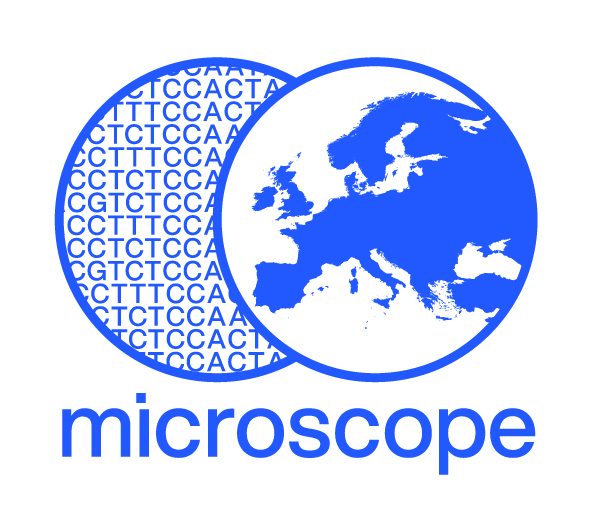
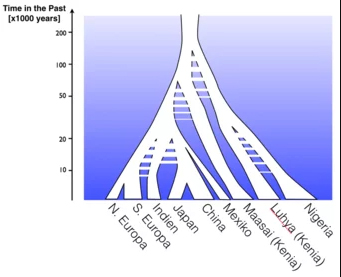

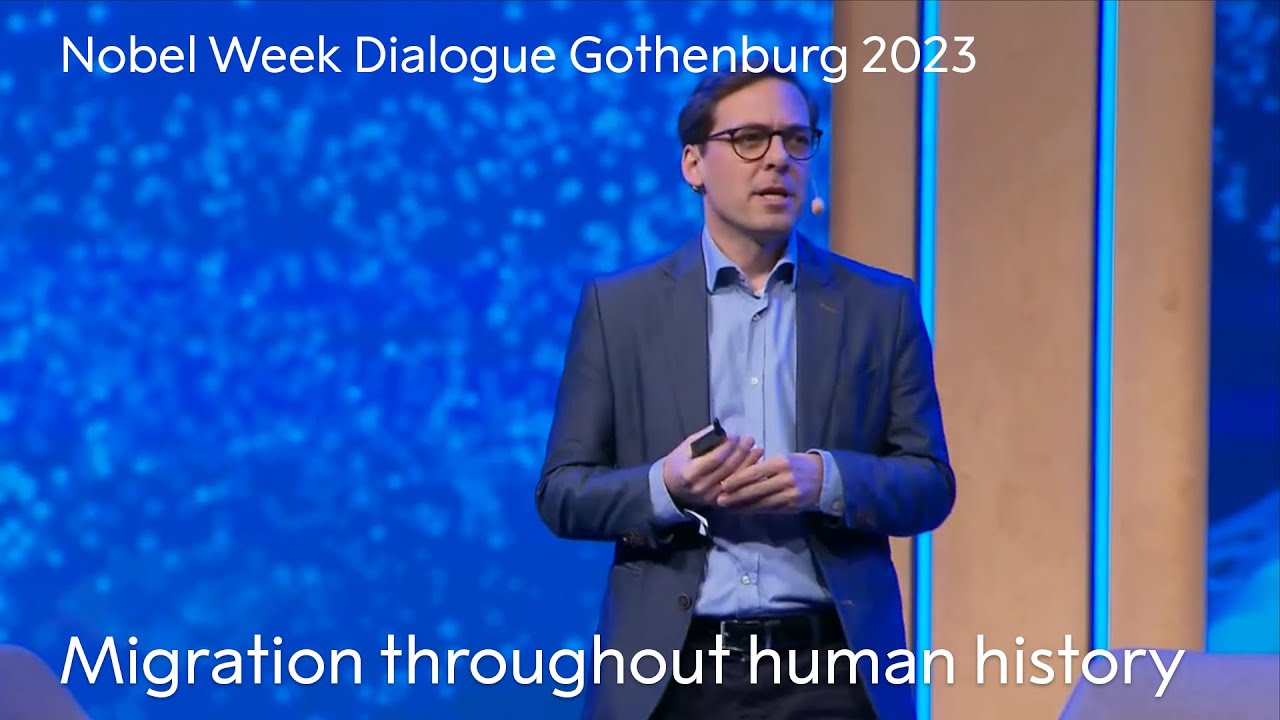
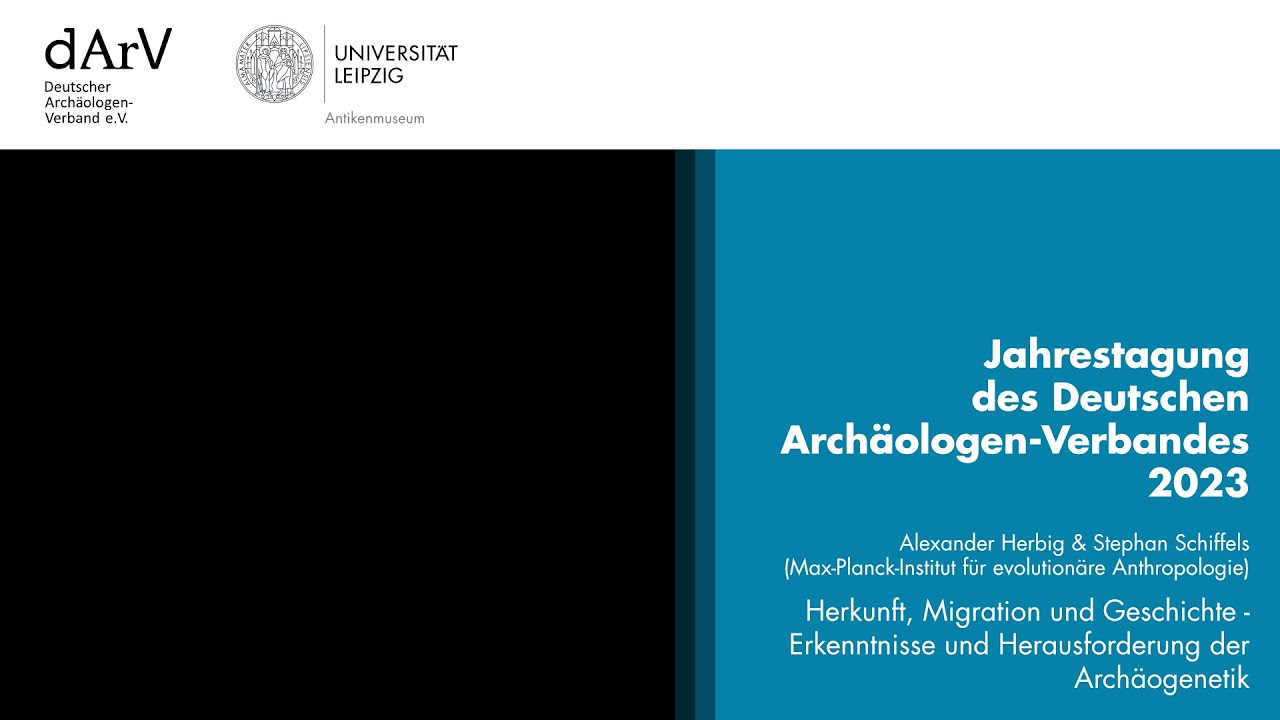
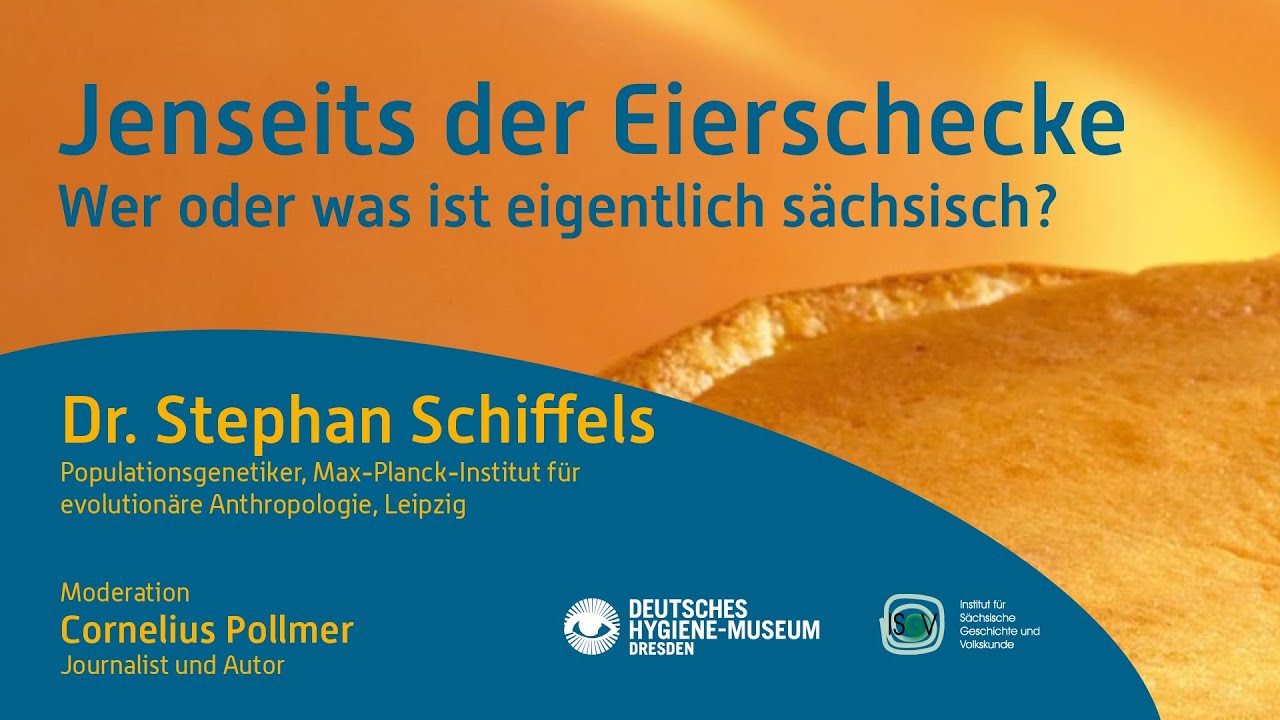
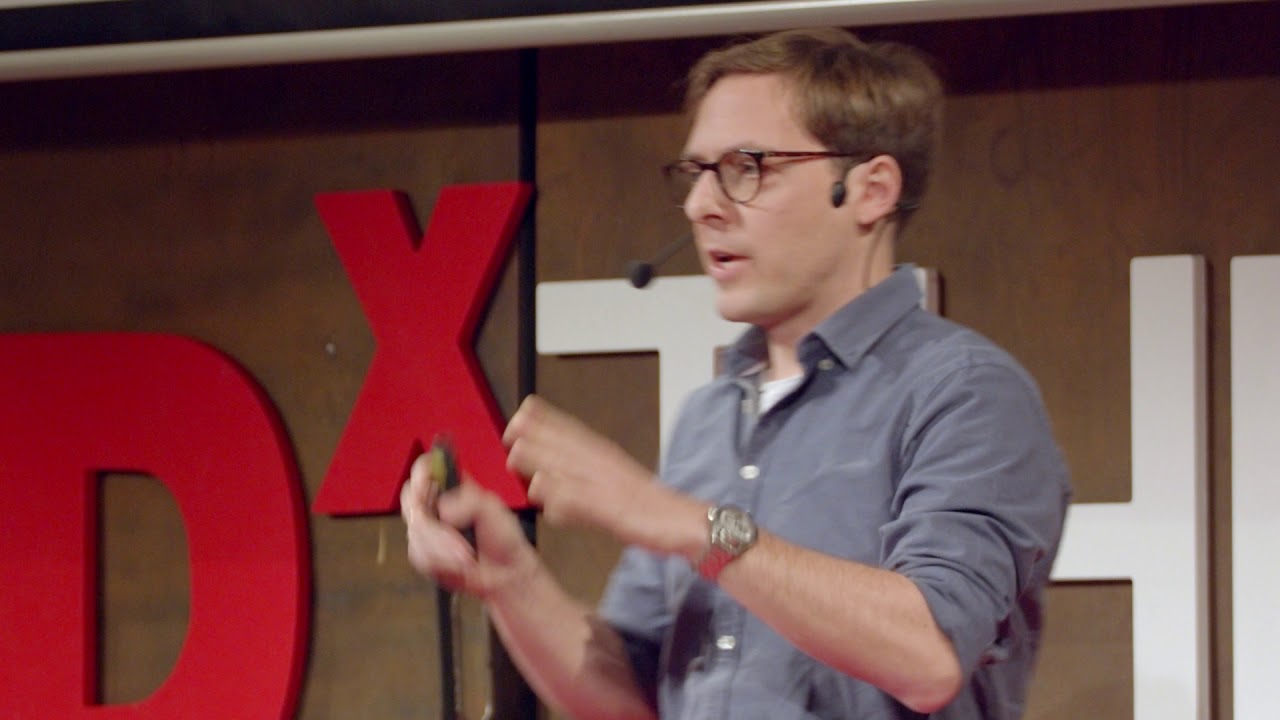
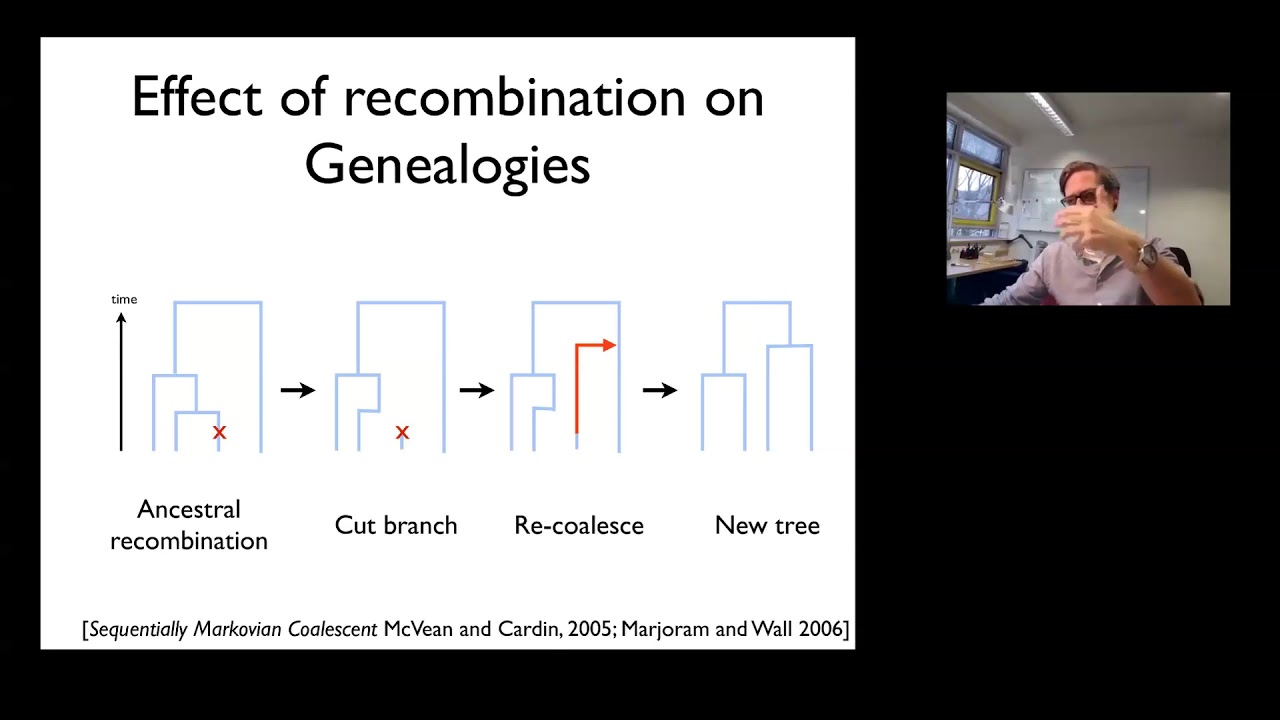
 Open Access
Open Access